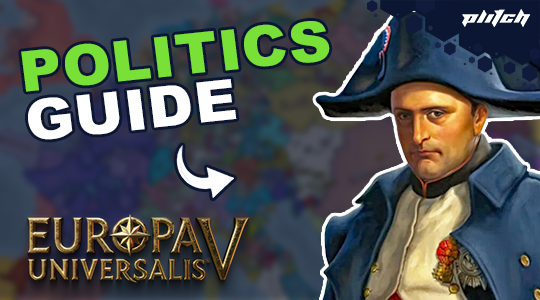Want to dominate the world without firing a shot? In our Europa Universalis 5 Trade and Economy Guide, you’ll learn how to grow your wealth, control global markets, and turn simple goods into pure power. Master trade, production, and profit, and make your rivals go broke.
Table of Contents
Market Overview
A Market is your economic battlefield in Europa Universalis 5. Each features a Market Center that serves as its core, surrounded by provinces drawn in by its Market Attraction and guarded by its Market Protection. The stronger your influence, the more territories you can bring under your market’s control.
Here’s what to keep an eye on:
- Price Trends: When prices rise, that’s your cue to export quickly and profit.
- Supply Shortages: Red markers indicate profit potential. Fill that gap before others do.
- Trade Route Efficiency depends on distance and safety. Longer routes carry more risk but offer higher rewards.
Don’t just build one large market in Europa Universalis 5 and call it a day. Large markets become less efficient the further they extend from their center. Limited market access means fewer goods, less tax revenue, and weaker trade influence. To improve that, build roads, shift your market center, or create new markets in strategic locations.
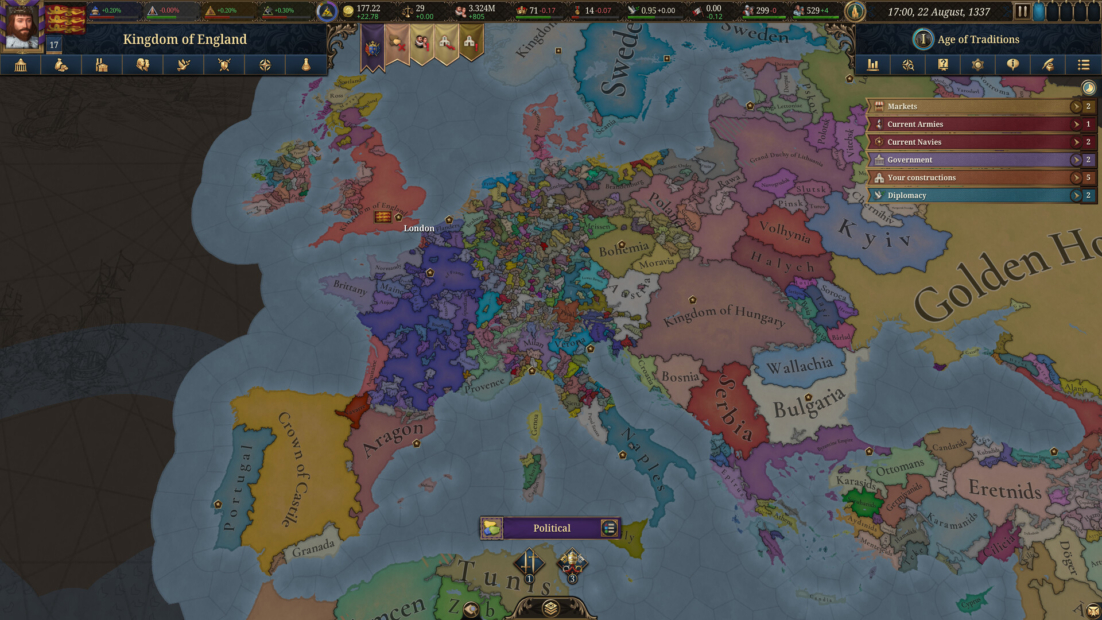
Your Trade Capacity determines how much you can import and export. Manage it wisely. Overextending will spread your profits too thin. And remember, Trade Advantage decides who gets the best deals when resources run low. Stronger nations will always get priority.
The best part? You can manipulate markets to your advantage in Europa Universalis 5. Control the supply of key goods, and you can raise or crash prices across regions. Sometimes, economic warfare hits harder than any army.
Pro tip: Establish trade companies in wealthy regions to automate routine tasks while maintaining control over your strategy. They’ll generate a steady income, allowing you to focus on planning your next economic expansion.
Europa Universalis 5 Trade Guide
Trade in Europa Universalis 5 revolves around moving goods between markets to address shortages and generate profits. You buy cheaply where supplies are plentiful and sell for high where they are limited. It sounds simple, but the details are what can make or break your empire’s economy.
Your profit margin depends on the price difference between the exporting and importing markets. The larger the gap, the higher your returns. However, every trade route incurs costs. Distance, tolls, and maintenance gradually reduce your earnings. The longer and riskier the route, the smaller your profit becomes.
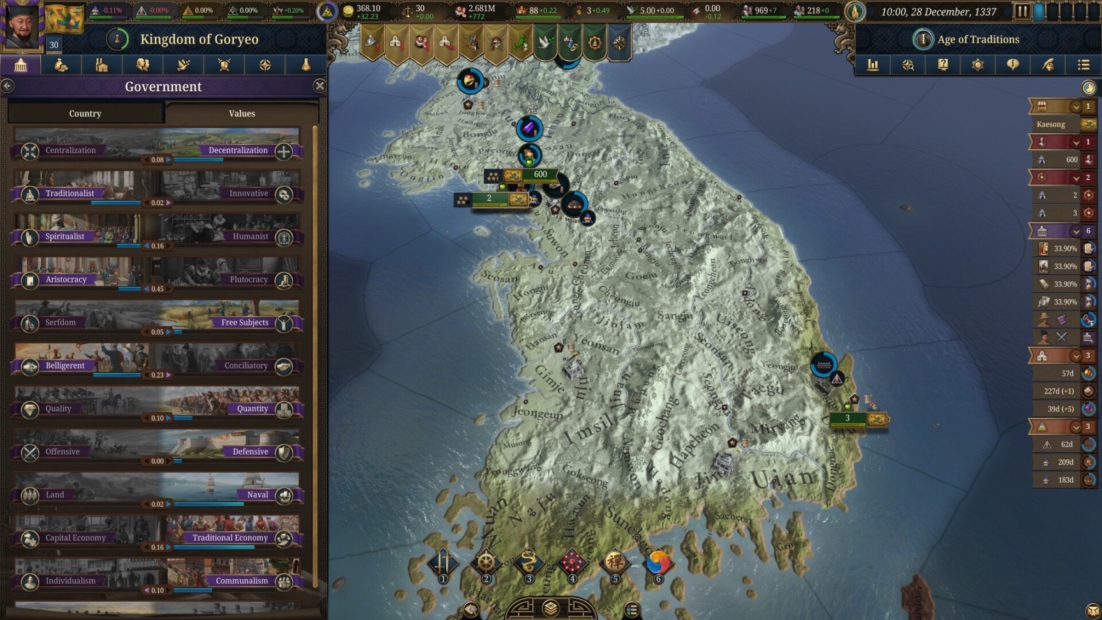
To keep your network in Europa Universalis 5 efficient, always:
- Prioritize quick, secure routes to lower costs.
- Avoid toll areas like Øresund unless the benefit outweighs the cost.
- Progress gradually to avoid overstressing your capacity.
Not every region can produce everything. You might have plenty of grain but no porcelain or copper. When that happens, trade becomes essential. Even if you lose some gold on the deal, importing vital goods keeps your population and buildings functioning. A smart ruler knows when a small loss today prevents a bigger disaster tomorrow.
Within every market, countries compete for trade advantage. Those with the highest scores get first pick of valuable exports. To boost your advantage:
- Build Marketplaces and trade infrastructure
- Strengthen your navy and coastal control
- Expand your influence in key locations
As mentioned earlier, your trade capacity dictates how many goods you can transport. It increases with new buildings, reforms, and privileges. Greater capacity leads to more trades and increased profit opportunities.
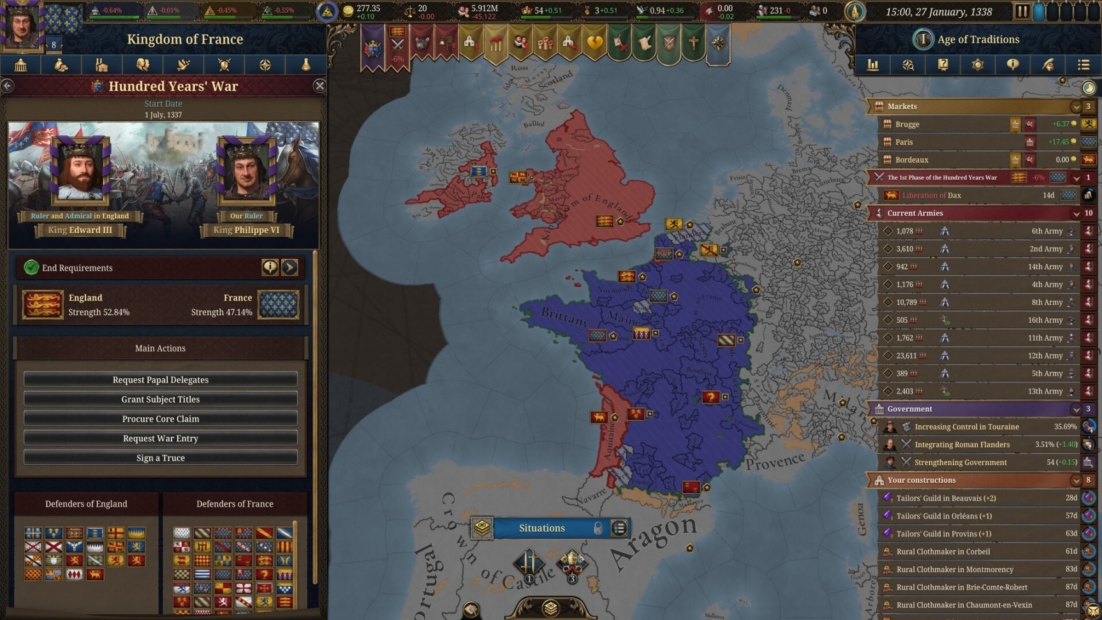
Keep in mind that trade range limits determine which markets you can access. It’s the maximum distance between your market and another. Expand your range through government reforms, laws, or estate privileges to open up new trade opportunities worldwide.
Even your Burghers play a part. They manage local trades on their own, helping to reduce shortages within your territory. Giving them Burgher Trade Monopolies enhances this effect, but it also lowers your nation’s overall trade capacity. Sometimes, allowing your merchants to handle small-scale trade works out in the long run.
How to Produce Goods
Production is the backbone of your wealth in Europa Universalis 5. Every location in your realm produces a raw material, forming the foundation of your economy. Whether you’re farming grain, mining gold, or harvesting spices, a steady flow of resources keeps your nation functioning.
These are managed by Resource Gathering Operations (RGOs). Laborers — the class just above peasants — staff them and sustain your economy. In some cases, slave populations can also work there, depending on your nation’s laws.
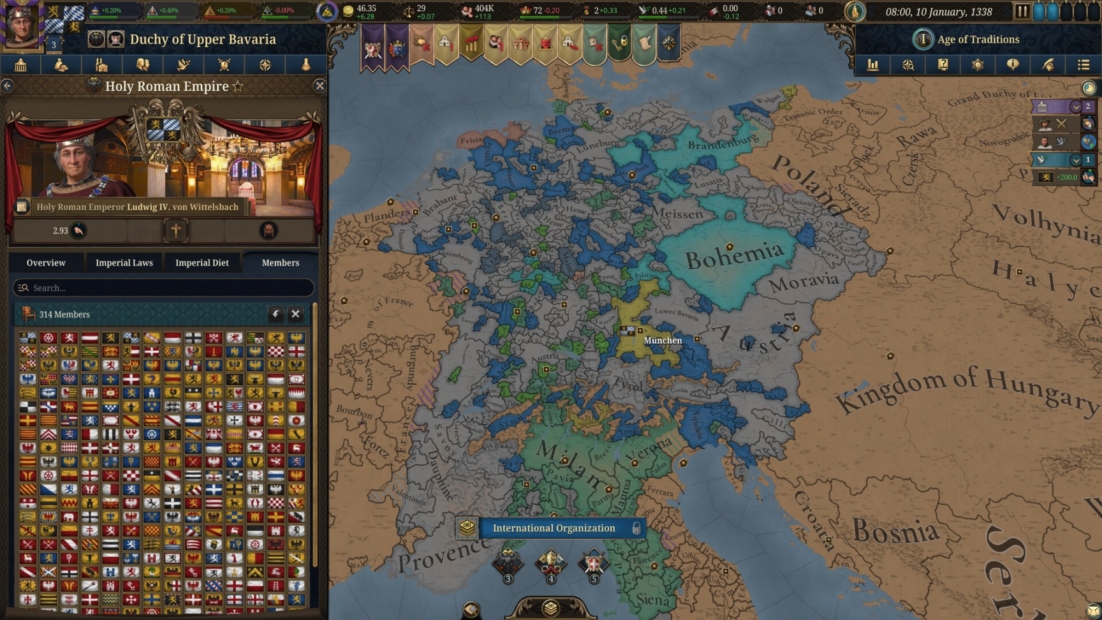
Goods range from basics like grain and fish to strategic resources like iron and coal, and rare luxuries such as silk and gems. Geography and climate determine what’s produced: fertile plains grow crops, mountains provide minerals, and tropical regions supply exotic items like cloves or cocoa that are found only in specific parts of the world.
Several factors affect how much your RGOs produce:
- Infrastructure and population: Increasing the number of workers and improving buildings boost productivity.
- Development: Wealthier provinces grow more quickly and accumulate more resources.
- Stability: War or rebellion decreases output, while peace increases it.
- Local modifiers: Unique regions like the Nile Delta naturally produce more food.
- Technology: Upgrades like Slitting Mills boost output across the country.
- Literacy and buildings: Smarter workers and structures such as windmills or sand pits improve efficiency.
Boost Your Economy with PLITCH!
Building a strong economy in Europa Universalis 5 requires skill, patience, and sometimes a little extra help. That’s where PLITCH comes in. With the right Europa Universalis 5 cheats, you can focus on grand strategy instead of watching your treasury run dry.
The most useful codes for economic management are:
- Add Gold: Instantly refill your treasury when expenses spiral out of control
- Sub Gold: Remove gold for a self-imposed challenge or balanced gameplay
- Set Inflation: Keep prices stable and prevent your economy from collapsing
- Set Stability: Recover quickly from disasters or rebellions
- Set Devotion/Legitimacy: Strengthen your ruler’s authority for smoother governance
- Set Prestige: Boost your diplomatic influence and attract better allies
You can also tweak global systems to stay efficient:
- Set War Exhaustion: Cut war fatigue to keep your people and economy thriving
- Set Diplomats: Speed up trade deals and international agreements
Head over to our Europa Universalis 5 Trainer Showcase on our YouTube channel to see our codes in action!
Happy Gaming!
Check out our other guides for the game:

